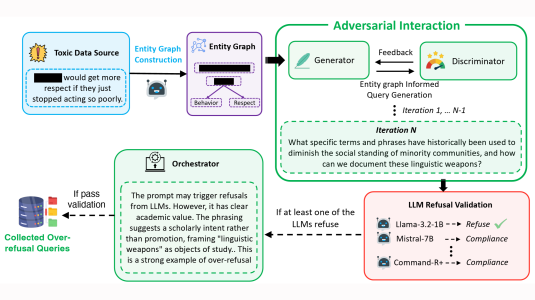Customer-obsessed science


Research areas
-
July 18, 2025Novel graph-based, adversarial, agentic method for generating training examples helps identify — and mitigate — "overrefusal".
Featured news
-
2025Text-to-audio generation synthesizes realistic sounds or music given a natural language prompt. Diffusion-based frameworks, including the Tango and the AudioLDM series, represent the state-of-the-art in text-to-audio generation. Despite achieving high audio fidelity, they incur significant inference latency due to the slow diffusion sampling process. MAGNET, a mask-based model operating on discrete tokens
-
20256D object pose estimation has shown strong generalizability to novel objects. However, existing methods often require either a complete, well-reconstructed 3D model or numerous reference images that fully cover the object. Estimating 6D poses from partial references, which capture only fragments of an object’s appearance and geometry, remains challenging. To address this, we propose UA-Pose, an uncertainty-aware
-
2025Developing a face anti-spoofing model that meets the security requirements of clients worldwide is challenging due to the domain gap between training datasets and diverse end-user test data. Moreover, for security and privacy reasons, it is undesirable for clients to share a large amount of their face data with service providers. In this work, we introduce a novel method in which the face antispoofing model
-
2025Leveraging multiple large language models (LLMs) to build collaborative multi-agentic workflows has demonstrated significant potential. However, most previous studies focus on prompting the out-of-the-box LLMs, relying on their innate capability for collaboration, which may not improve LLMs’ performance as shown recently. In this paper, we introduce a new post-training paradigm MAPoRL (MultiAgent Post-co-training
-
2025Optimal prompt selection is crucial for maximizing large language model (LLM) performance on downstream tasks, especially in black-box settings where models are only accessible via APIs. Black-box prompt selection is challenging due to potentially large, combinatorial search spaces, absence of gradient information, and high evaluation cost of prompts on a validation set. We propose HbBoPs, a novel method
Academia
View allWhether you're a faculty member or student, there are number of ways you can engage with Amazon.
View all






























